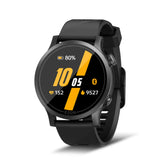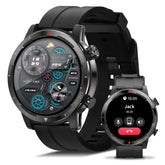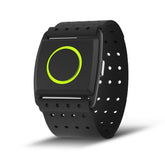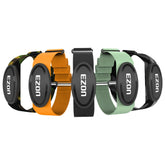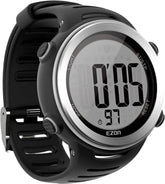Unleash Your Inner Runner: The Ultimate Running Guide and Training Plan
Running is more than a sport—it’s a journey of self-discovery, endurance, and growth. Whether you’re lacing up for your first 5K or aiming to crush a marathon PR, this running guide will equip you with expert tips, science-backed **training plan**s, and the tools to optimize performance—starting with the basics of gear and training.
1. Start Strong: Choose the Right Running Shoes
Your shoes are your most critical gear—wrong ones can lead to injuries, while the right pair enhances comfort and efficiency.
A. Understand Your Foot Type
- Neutral Arches: Look for balanced cushioning (e.g., Brooks Ghost, Hoka Clifton).
- Flat Feet (Overpronation): Stability shoes with arch support (e.g., ASICS Gel-Kayano, Saucony Guide).
- High Arches (Underpronation): Max cushioning or motion-control shoes to absorb shock.
B. Fit Matters More Than Style
- Test at the End of the Day: Feet swell, so try shoes in the afternoon for an accurate fit.
- Toe Space: Leave a thumb’s width between your longest toe and the shoe tip to prevent blisters.
C. Replace Regularly
- Every 300–500 Miles: Wear and tear reduces cushioning; use a heart rate monitor-paired watch to track mileage and set replacement alerts.
2. Train Smarter: Master Heart Rate Zones with a Monitor
A heart rate monitor turns guesswork into precision, ensuring you train at the right intensity for your goals.
The 5 Heart Rate Zones for Runners
- Zone 1 (50–60% MHR): Recovery runs/walks—perfect for easy days.
- Zone 2 (60–70% MHR): Aerobic endurance—builds fat-burning efficiency (ideal for long runs).
- Zone 3 (70–80% MHR): Lactate threshold—improves the pace you can sustain for 1–2 hours.
- Zone 4 (80–90% MHR): Anaerobic capacity—boosts speed for 5K/10K races.
- Zone 5 (90–100% MHR): Max effort—sprint training to improve VO2 max.
How to Use It
- Warm-Up: 10 minutes in Zone 1–2 to increase blood flow.
- Main Set: Hit target zones for your workout (e.g., Zone 4 for 8x400m intervals).
- Cool-Down: 5 minutes in Zone 1 to lower heart rate gradually.
3. Training Plans for All Levels
A. Beginner Plan (12 Weeks to 5K)
- Goal: Build consistency and avoid burnout.
-
Weekly Structure:
- 3 Runs: Alternate run-walk (1 min run, 1 min walk) for 20–30 minutes.
- 1 Strength Session: Focus on core and glutes (planks, glute bridges).
- Sample Week 1: 3x20-minute run-walk, gradually increasing running time each week.
B. Intermediate Plan (16 Weeks to Half Marathon)
- Goal: Increase mileage and introduce tempo runs.
-
Key Workouts:
- Tempo Runs: 20–30 minutes at Zone 3 (comfortably hard pace).
- Long Runs: Gradually build to 10–12 miles at Zone 2.
C. Advanced Plan (20 Weeks to Marathon)
- Goal: Peak performance and race-specific intensity.
-
Key Workouts:
- Threshold Intervals: 4x2 miles at marathon goal pace (Zone 3–4).
- VO2 Max Sessions: 6x800m at 5K pace (Zone 4–5) to boost oxygen uptake.
4. Boost Performance: Tips for Faster, Stronger Runs
A. Perfect Your Form
- Posture: Keep your torso upright, shoulders relaxed—imagine a string pulling you upward.
- Foot Strike: Land midfoot or forefoot (avoid heel striking on hard surfaces).
B. Prioritize Recovery
- Active Recovery: Walk or do yoga on rest days to improve mobility without strain.
- Sleep 7–9 Hours: Use a heart rate monitor to track deep sleep, crucial for muscle repair.
C. Fuel for Success
- Pre-Run: 30–60g carbs 1 hour before (oatmeal, banana) for sustained energy.
- Post-Run: 20–30g protein + 50g carbs within 60 minutes (chocolate milk + toast) to aid recovery.
5. Gear Up with EZON for Peak Performance
A. Heart Rate Monitor Watches
- EZON Heart Rate Series: ECG-grade sensors for accurate zone tracking, even during high-intensity sprints.
- Key Features: 24/7 heart rate monitoring, sleep analysis, and recovery scores to prevent overtraining.
B. Sports Watches for Training Plans
- EZON GPS Series: Preloaded workout plans, pace alerts, and multi-satellite navigation for route accuracy.
- Ideal For: Tracking mileage, elevation, and real-time data to adjust your training plan on the go.
6. Common Mistakes to Avoid
- Overtraining: Ignore the “no pain, no gain” myth—use heart rate variability (HRV) to gauge recovery readiness.
- Neglecting Strength Training: Weak core/glutes lead to poor form and injuries—add 2 sessions/week of bodyweight exercises.
- Ignoring Rest Days: Take 1–2 days off weekly to let your body adapt and avoid burnout.
Your Journey Starts Now: Train with Purpose
This running guide gives you the tools to transform from a casual jogger to a confident runner. Remember, progress is built on consistency, not perfection:
- Week 1: Focus on shoe fit and easy runs.
- Month 1: Add heart rate training and strength work.
- Race Day: Trust your training plan and gear to carry you across the finish line.
With the right running shoes, a heart rate monitor, and a plan tailored to your goals, you’ll unlock performance gains and fall in love with the rhythm of running. Lace up, step outside, and let every stride bring you closer to unleashing your inner runner.
